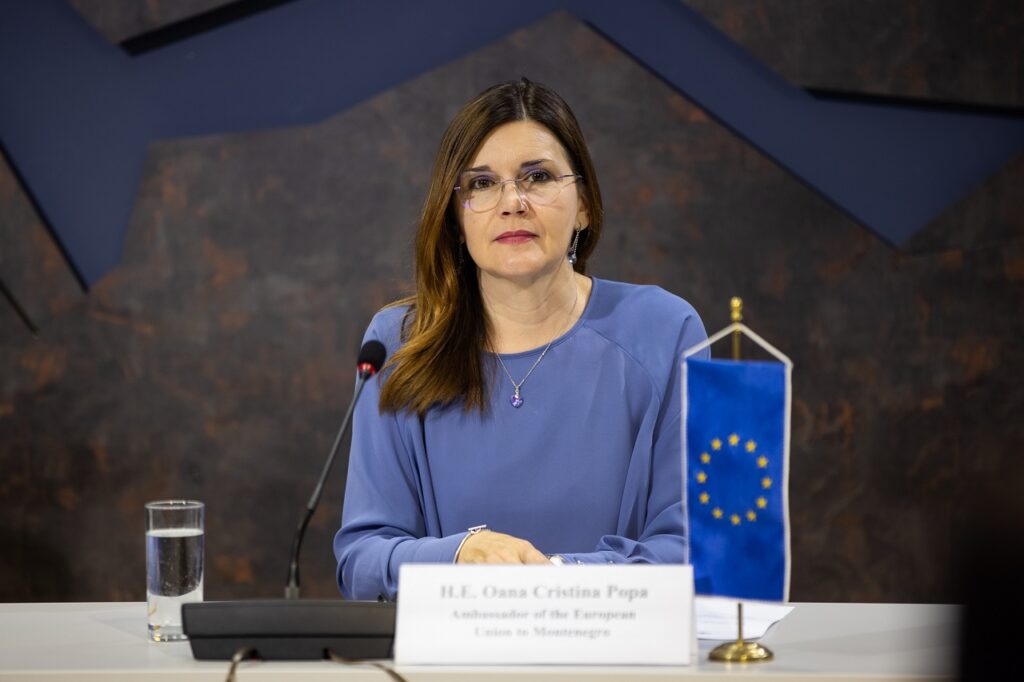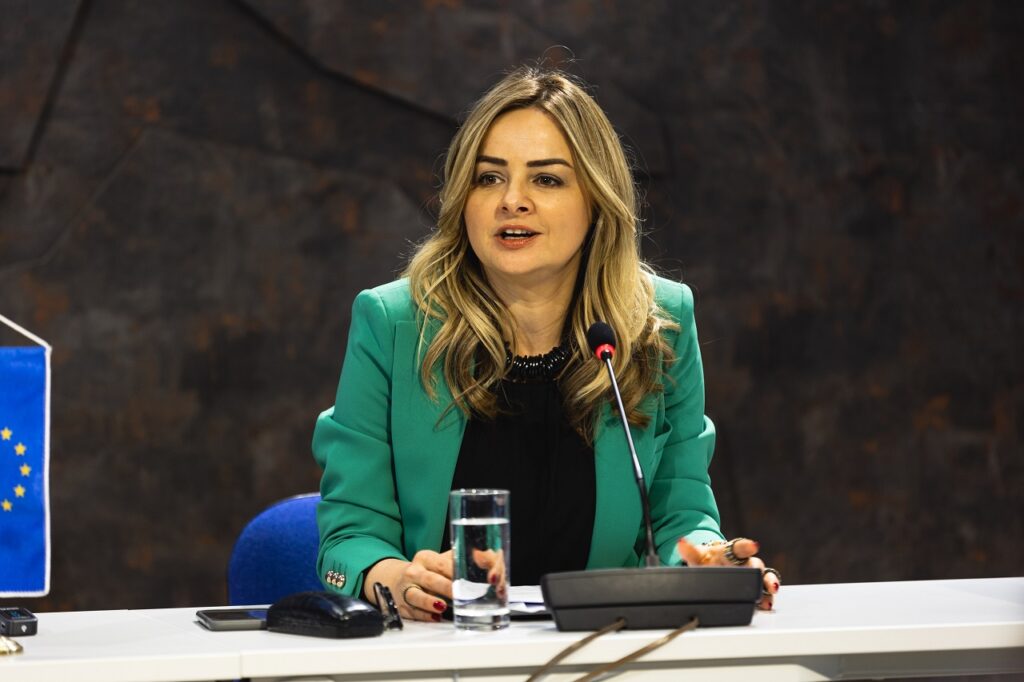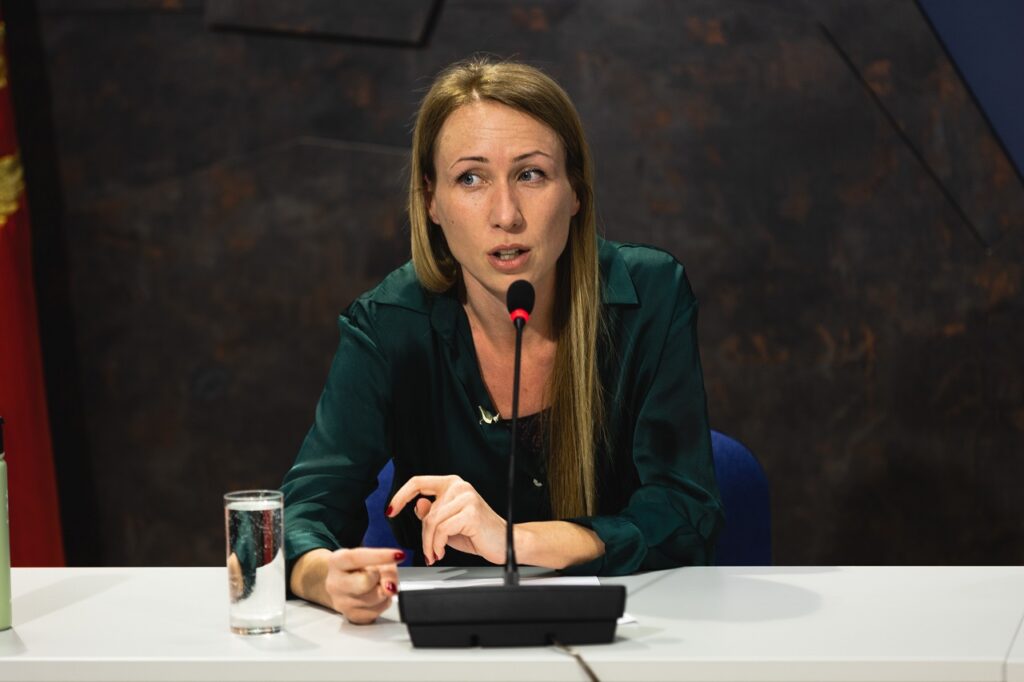“Civil society in Montenegro is a great resource for the Europeanisation of society, and the M’BASE program has been a way for many in recent years to continue their activities because the funds allocated by the government have been lacking, and this program has had an impact and is still having an impact on protecting the core of the civil society in Montenegro,” it was stated at today’s signing of 19 contracts worth €652,284.84, under the fourth call for proposals of the EU funded M’BASE program implemented by the Centre for Civic Education (CGO) with partners and collaborators.

“Civil society plays a vital role in bringing communities together and bridging social divides, especially in times of political instability. I am aware that it is a great responsibility, but I am also aware of the strength and commitment of Montenegrin civil society. We count on you to continue promoting tolerance, peace, and dialogue even in difficult times because you are the ones driving positive changes and helping the EU accession process,” said Ambassador Oana Cristina POPA, Head of the EU Delegation to Montenegro. Referring to cooperation with civil society, she also highlighted the continuous and growing financial support for civil society organisations’ projects from the EU pre-accession funds. She expressed satisfaction with the diversity of projects supported under this call, as well as their geographical distribution. “Our message to you is that the EU is here to support you both financially as well as through involvement in substantive dialogues on public policies,” Popa concluded.
“Civil society organisations have managed to position themselves as relevant voices in various fields. This is important given how difficult and slow the process of democratic consolidation and establishing the necessary accountability of decision-makers is, and how essential it is for us to remain vigilant, actively monitor developments, express solidarity with each other…” said Daliborka Uljarević, CGO Executive Director. “The past three years have been marked by the lowest ever budgetary allocations for the NGO sector, with generous spending in many other areas. The change of government did not bring a change in attitude towards a critically oriented and committed civil society. We must continue to fight for a better Montenegro based on values and public interest, whether it is about providing direct assistance to service users, environmental protection, or strengthening individual groups to think critically and actively participate in shaping democratic practices,” she added.
Jovana Janjušević, CZIP Executive Director, highlighted numerous creative ideas presented under the fourth call. “Many applications impressed us greatly and showed how far the civil sector in Montenegro has come. It gives me great pleasure that with this mechanism, we are providing organisations of different development levels to continue their mission,” she said. From the perspective of an organisation that has been involved in nature and environmental protection for years, Janjušević also emphasised the importance of projects addressing Chapter 27 and those that have no voice – plants, and animals, as well as climate change.
“The EU has shown consideration for the civil sector, and therefore I encourage all organisations not to give up on ideas that have not been accepted now, but to improve them and reapply as such projects are important for the community,” she said.
“As part of our project supported under the M’BASE program, we will monitor the promises given by key institutions in the Montenegrin healthcare system and report on their implementation. Institutions have for decades been intentionally failing to introduce a set of indicators based on which everyone in the civil sector could monitor and evaluate the development of the healthcare sector. That is why we have decided to take on that work now, as well as to chart a slightly different social development path through debates with influential people than the one currently present on the political scene, which we do not consider good,” Milena Popović Samardžić, President of the Union of Doctors of Medicine of Montenegro said.
“Through the “Screening” project, we want to improve the control of institutions’ activities by increasing their transparency and accountability while raising public awareness of the rule of law and the need to curb high-level corruption. The work of executive, legislative, and judicial institutions in the period following the thirty-year rule of the same political structure will be analysed in detail and presented in six documentary-investigative series, and findings of unlawful acts and corruption trails in the institutions’ activities, along with evidence, will be presented to the competent institutions for further action,” said Miodrag Vujović of the KOD organisation.
The project “CSOs in Montenegro – from basic services to policy shaping – M’BASE” is implemented by CGO in partnership with the German Friedrich Ebert Foundation (FES), the NGO Centre for Protection and Research of Birds of Montenegro (CZIP), and the NGO Politikon Network, in collaboration with the Ministry of Public Administration and the Ministry of European Affairs of the Government of Montenegro. The project is funded by the European Union and co-financed by the Ministry of Public Administration.



